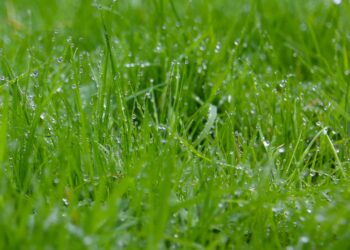Zero Waste Living for Beginners: A Simple Guide to a Greener Lifestyle
Embracing a zero-waste lifestyle is a commendable decision, and crucially, it’s far simpler to start than most people think. Zero waste living seeks to minimize landfill-bound trash, conserving natural resources and curbing pollution along the way. Whether it’s reducing your plastic consumption or advocating for a circular economy, each small step has a profound environmental impact. This guide unfolds a beginner’s journey towards achieving a greener lifestyle through practical, everyday changes.
Understanding Zero Waste Living
Zero waste living is an eco-friendly approach that emphasizes waste prevention at the source and prolongs the life cycle of products. The ultimate goal is to not send anything to landfills, incinerators, or the ocean. Instead, the approach focuses on redesigning resource life cycles so all products are reused. It’s not about perfection; it’s about making better choices.
Benefits of Zero Waste Living
- Environmental Impact: Reduces your carbon footprint and pollution, conserving ecosystems and wildlife.
- Economic Savings: Buying less and choosing reusable options leads to significant cost savings over time.
- Health Benefits: Minimizing use of synthetic materials and toxins in your day-to-day life leads to better health and wellbeing.
Getting Started with Zero Waste: Basic Steps for Beginners
Transitioning to a zero-waste lifestyle doesn’t happen overnight, but small, consistent actions create lasting impact. Here are foundational steps to get you started:
1. Reduce Your Consumption
Start by buying less. Every item avoided is one less item needing disposal. Focus on what you truly need and resist impulse buys. Emphasize quality over quantity to ensure longevity of your purchases.
2. Reuse and Repurpose
Before throwing anything away, ask if it can be used again. Shopping for products with minimal packaging or choosing reusable options like cloth bags and glass containers drastically cuts down on waste.
3. Recycle Properly
When reuse isn’t an option, recycling is the next best step. Educate yourself on what can and can’t be recycled in your community to optimize your recycling habits.
4. Compost Organic Waste
Composting kitchen scraps and yard waste can significantly reduce your household’s total waste while enriching the soil naturally. Begin with a simple compost bin to transform organic waste into valuable compost for your garden.
5. Support Sustainable Brands and Services
Choose products from companies that are committed to sustainable practices and materials. By supporting these businesses, you encourage wider adoption of eco-friendly practices.
Common Challenges and Solutions in Zero Waste Living
Adopting a zero-waste lifestyle isn’t without its hurdles. Here’s how to manage some common challenges:
Dealing with Convenience Culture
The convenience of disposable, one-time-use products can be tempting. Combat this by preparing ahead for your needs. Keep reusable alternatives handy in your car, at your workplace, and in your bag.
Finding Zero Waste Resources
Initially, finding places to shop or dispose of items responsibly can seem overwhelming. Use online resources, community groups, and apps dedicated to zero-waste living to locate recycling centers and bulk-buy stores.
Staying Motivated and Resourceful
Maintain your drive by connecting with a community of like-minded individuals. Online forums, local environmental groups, and social media can provide support and inspiration.
Living Zero Waste on a Budget
Many people assume that zero waste options are more expensive. However, with smart planning and creativity, living zero waste can be extremely budget-friendly:
Buy Used or Borrow
Regularly visit thrift stores, use apps for swapping items with others, and borrow things that you need infrequently.
DIY Projects
Homemade cleaners, beauty products, and even upcycled furniture can be cost-effective and environmentally friendly alternatives.
Bulk Purchasing
Buying in bulk often reduces the price per unit and cuts down on packaging as well. Choose refill stations for everyday essentials like detergents and soaps.
Conclusion: Every Step Counts
Each action you take brings us closer to a sustainable, zero-waste world. Remember, the goal isn’t to achieve perfection immediately but to make consistent, mindful decisions. Start small, think big, and adjust as you go. Transitioning to a zero waste lifestyle is a rewarding journey towards sustainability and a healthier planet.









